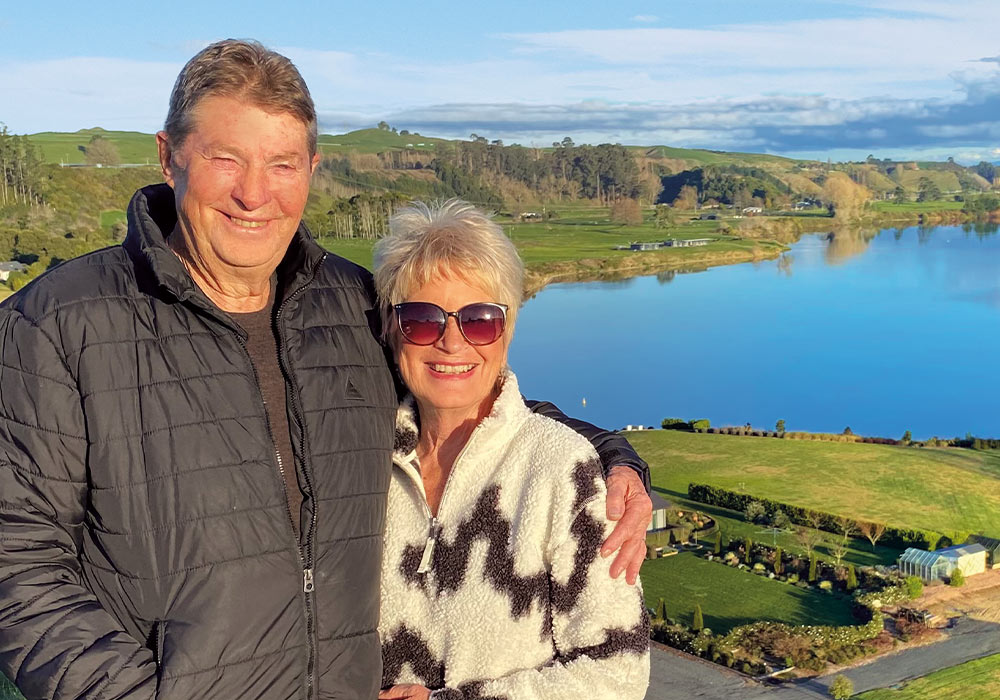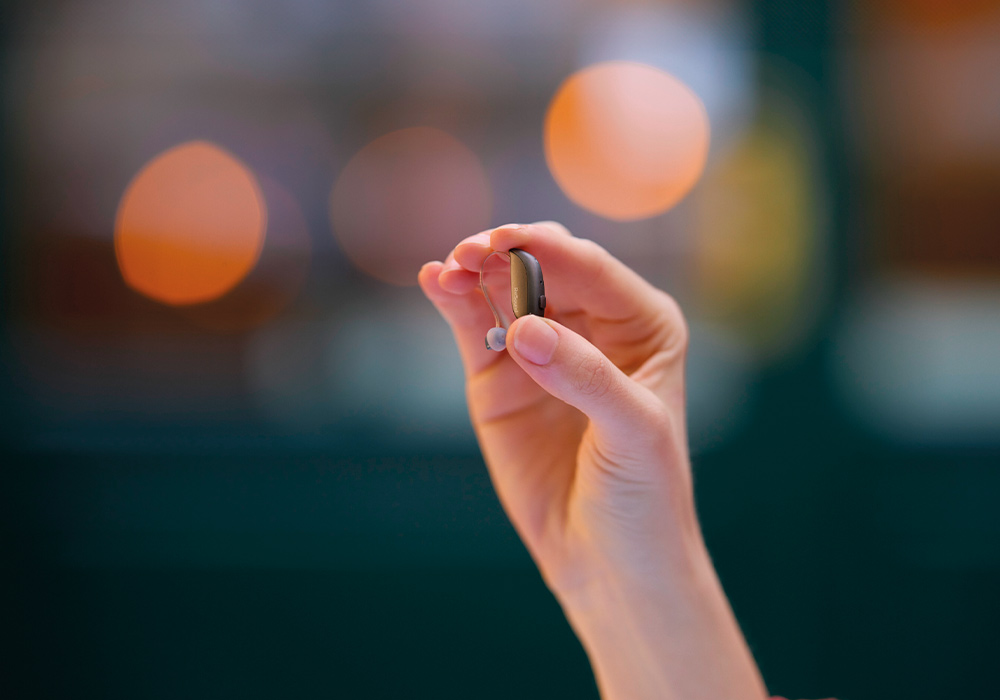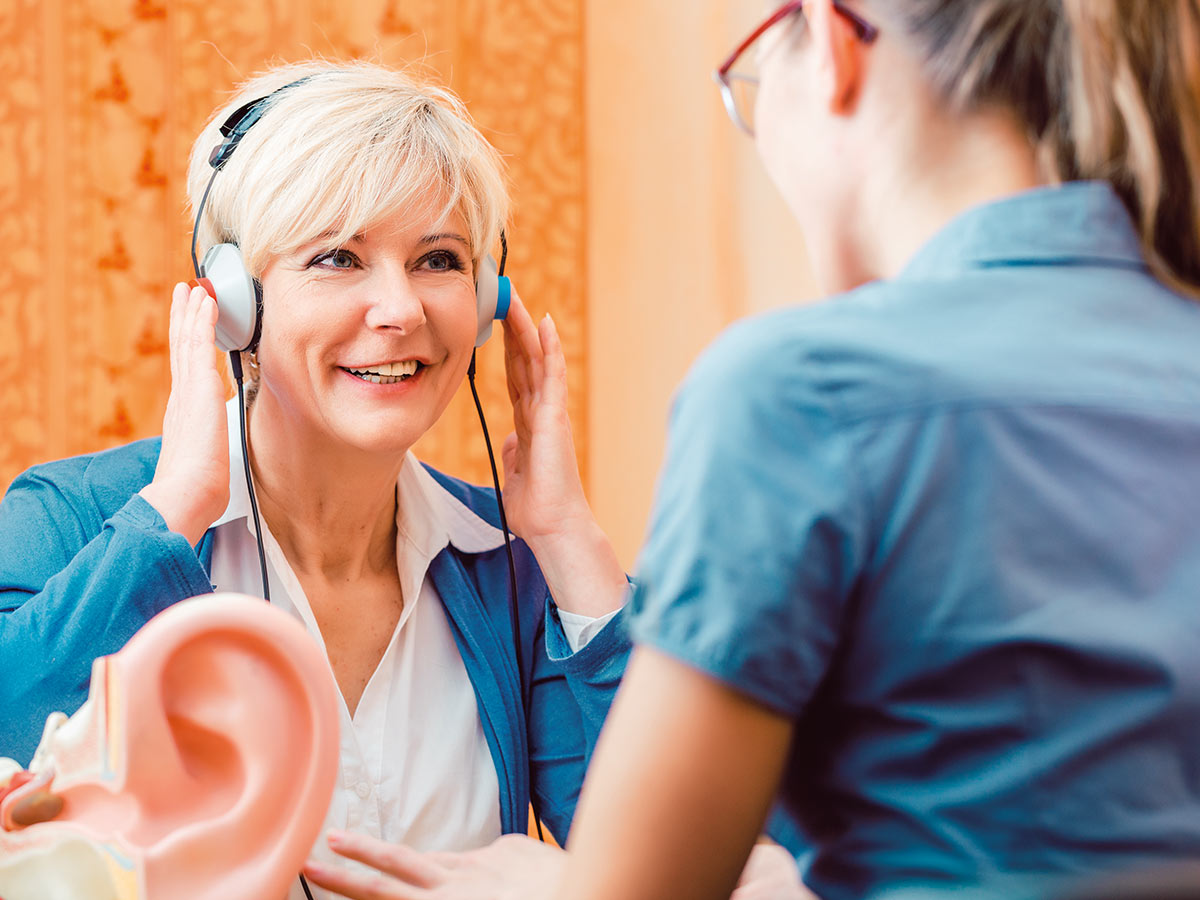Seasoned RV adventurer Jill Malcolm meets up with people of all ages and interests on her travels, and a recent chance encounter led to an interesting conversation – once the communication barrier (affected by hearing loss) was managed.
In a spacious camping area Geoff, a fellow motorhomer, unleashed his dog so it could run uninhibited. It was a Jack Russell by the name of Ruby and in exuberant bounds she shot off across the grass towards the river.
“Ruby, Ruby,” bellowed Geoff.
The dog disappeared into the bushes.
Geoff turned to me. “She’s as deaf as post,” he said.
“She’s a Jack Russell,” I laughed. “It’s her rebellious nature.”
“What?” said Geoff.
I told him again.
“I didn’t catch that,” said Geoff.
At happy hour that evening, Geoff’s wife confided that Geoff was ‘as deaf as a post’.
“He won’t admit it. He tells me I’m muttering,” she said.
This sort of exchange is typical in people who are losing their ability to hear clearly.
A silent disability

Hearing loss at any level is a silent disability. It can’t be seen and is rarely painful, so it must affect your life in some way to be recognised. Widely travelled RVer Robin Lye knows this well. She has been deaf for many years and understands the consequences of a reduced ability to hear. To help spread the message, she gives talks to groups of people around the country to help educate about the importance of hearing well.
“In many situations where the environment is constantly changing, which is certainly applicable to RVers, the implications of poor hearing are emphasised,” she says. “People with uncorrected hearing loss don’t recognise how much they are missing and, although most of the time poor hearing is not necessarily life-threatening, it can have significant consequences.
“Not only are there all the social and communication aspects but also important safety issues. If you can’t hear signals, for instance, such as a change in the sound of the engine when you are driving, the sound of leaking gas, noises in the night, or warnings of any other impending events that need to be dealt with, you obviously can’t respond.”
Robin also shares other side effects which impact social reactions.
“Those with lowered hearing can, for instance, can be judged as standoffish or rude. They can misinterpret information, fail to hear someone walking or riding a bike up behind them or walking alongside them, or worse, reply to a comment inappropriately.”
I remember a perplexing encounter I once had in a camp kitchen when I recounted to my culinary companion how a fellow motorhomer had broken both legs. My fellow cook was obviously hard of hearing. She laughed and said: “Oh, I have plenty, she can have some of mine.”
Robin remembers one time before her hearing hadn’t yet been corrected when an acquaintance was telling her a long story. She couldn’t hear what she was saying, so she just laughed and nodded. It turned out the woman was recounting a devastating family calamity.

“It can be really embarrassing if you misinterpret information,” says Robin, “but more impactful is the way other people eventually get tired of repeating themselves or raising their voices when they’re talking to you and so stop trying.
“I often see people who have hearing loss trying to join in a group conversation until they become exhausted trying to follow what is being said. They retreat and as result become more and more socially withdrawn and isolated. This can lead to depression and is said to be a contributing factor for dementia.”
Robin says that it’s hard to understand why, when others start pointing out that you’re not hearing well, many people go straight into denial and completely ignore that there’s a problem.
“It’s surprising how long they can hold out even when the signs are obvious to everybody else. It annoys me, the way people often joke about hearing loss in a derisive way. This doesn’t help people accept that they have a problem and do something about it.”
Modern technology options

and accessibility
Murray Campbell is the head of Customer Activation for Resonate Health, an innovative, two-year-old audiology company.
“I think another reason for people being slow to admit they need help is that wearing hearing aids is seen by some as a sign that they are losing their vitality,” he says. “Aids can come with some negative baggage, often based on out-of-date perceptions of size and design.”
And then of course, there is the cost.
Relative newcomer to the space, Resonate Health brings with it a groundbreaking concept that is quickly catching on. The company’s founder is James Whittaker, who after a decade of experience in the hearing health industry, decided that it was time for a new model about the way audiology was delivered. His inspirational philosophy behind the Resonate concept is to make it more affordable for people with hearing loss to make sense of the world around them and live a full life.
James has created a system that makes top-of-the-line hearing aids accessible for many more people. The business model is brilliantly simple: customers pay a monthly subscription ($90) and for that, they receive audiology checks, top technology hearing aids, servicing and a refit every three years. The company is well past its fledgling stage now, having experienced rapid and positive growth, with 24 studios around the country.
Cutting edge technologies in hearing aids are transforming the hearing aid industry, offering improved sound quality, convenience and accessibility.
Audiologist Craig Lett from Resonate Health has been working in the hearing industry for the last 14 years and is passionate about using technology to improve hearing healthcare. He explains how hearing loss is often the result of a compromised hearing system due to nerve damage.
“A healthy hearing system is able to focus on what you are listening to and push other sounds into the background,” he says, “but a damaged system is less able to do that. For anyone with a degree of hearing loss, having a one-to-one conversation in a quiet room is vastly different from trying to communicate in a noisy restaurant. But sophisticated hearing aid technology has developed ways to filter background noises and bring what you want to hear back into focus.
Currently, an exciting global Bluetooth initiative called Auracast is making another giant leap forward. Using technology to manage background noise is not new, but this latest system now uses an audio-specific Bluetooth system to connect hearing aids directly to anything that has an Auracast audio output.
This enables direct audio streaming from many sources such as public address systems, home entertainment, concerts, conferences, lectures and so on.
“The clarity of reception is greatly enhanced and because the system is much easier to manage, users no longer have to figure out the complexities of the current system.”
Hearing aid technology is constantly evolving, becoming smarter, faster and more accessible for those who need it and there is an increasing range of options available. Recognising and admitting that you have an issue is obviously top priority. Then, getting help sooner rather than later will have a better outcome.
That message, at least, is loud and clear.






